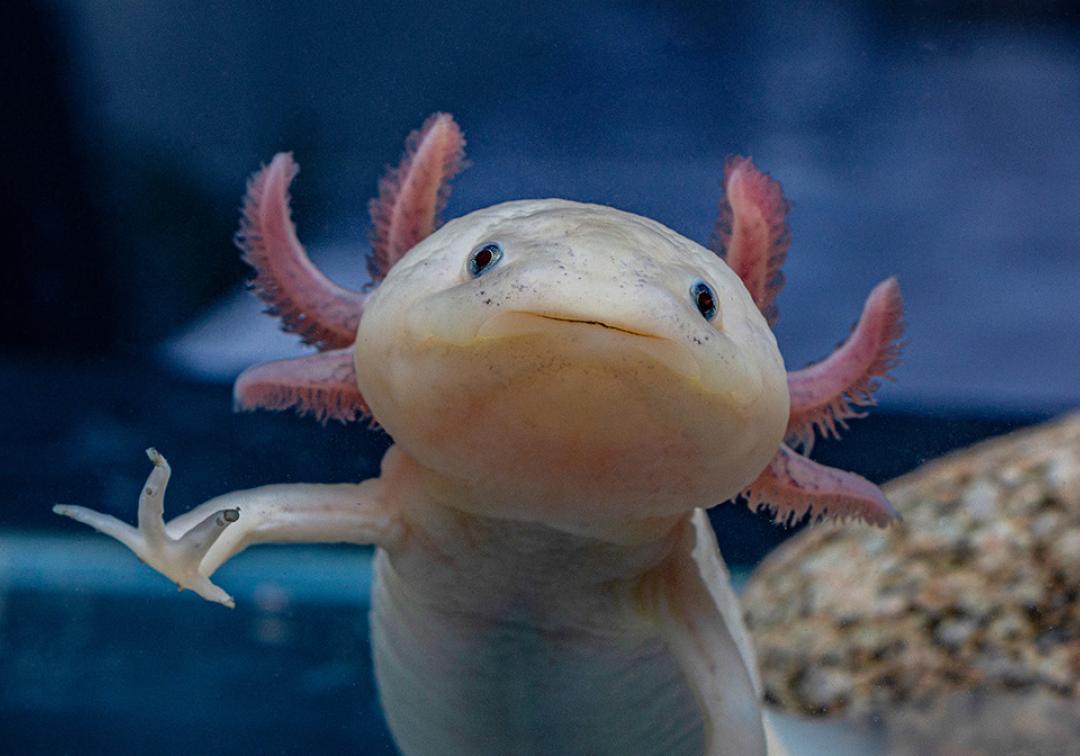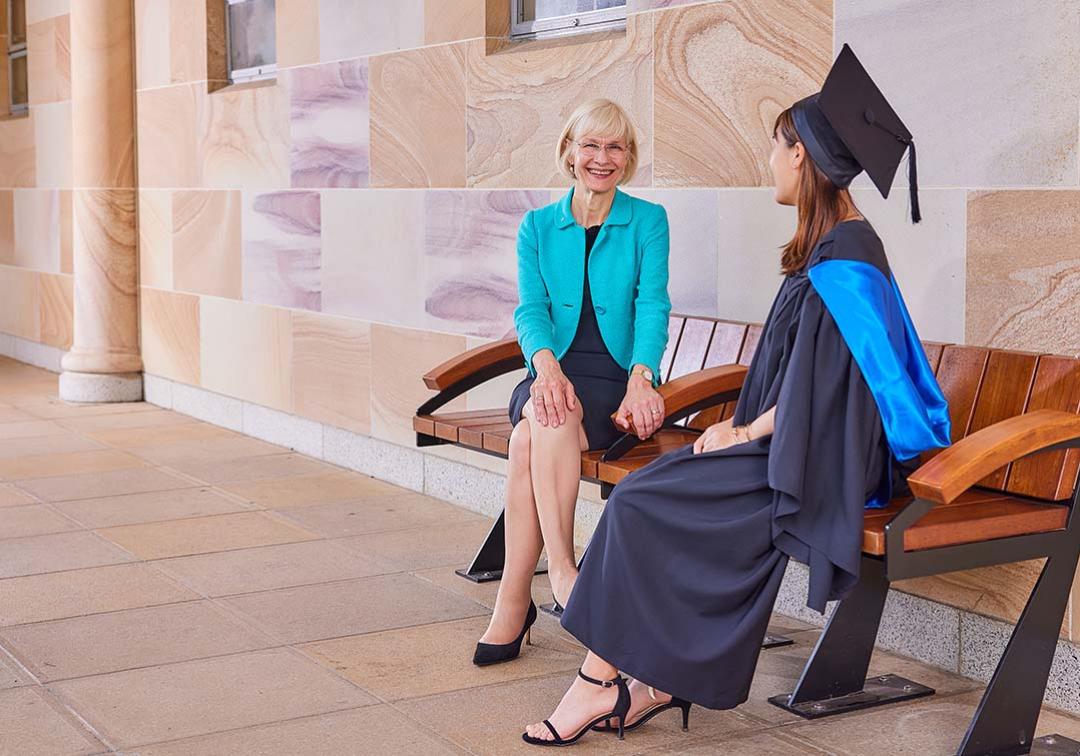
Bachelor of Arts (Honours)
Overview
Learn to think critically, and develop specialised knowledge in your chosen major as you undertake a thesis or research project.
The Bachelor of Arts (Honours) is suited to high-achieving arts students who want to better prepare themselves for a successful professional or academic career.
You'll undertake advanced subjects that build on your bachelor’s study and focus heavily on research methods and techniques. This knowledge will prepare you to complete a substantial research project – the major component of your honours program.
Depending on your field of study, you'll complete a semester-long or year-long honours research thesis. You will work one-on-one with a supervisor to complete all aspects of this substantial project, including:
- developing a suitable research topic
- applying research techniques and methodologies appropriate for your field
- presenting your ideas in a written thesis.
Program highlights
- Get one-on-one guidance while working with a supervisor to develop, write and submit a thesis or research project.
- Gain relevant experience that will prepare you for postgraduate study.
- Deepen your knowledge and skills in your chosen field.
Majors
Tailor your studies to suit your goals. This program offers these options:
- Ancient History
- Anthropology
- Archaeology
- Art History
How you'll learn
Your learning experiences are designed to best suit the learning outcomes of the courses you choose.
- Lectures
- Tutorials
- Overseas study
- Research experience
- Fieldwork
- Workshops
What you'll study
At UQ, degrees are called 'programs' and subjects are called 'courses'.
Career possibilities
Take our quick quiz to explore some of the countless careers you could pursue with a Bachelor of Arts, and learn which majors can help you get there. Possibilities include:
- Anthropologist
- Museum curator
- Archaeologist
- Chinese translator/interpreter
- Arts journalist
- Political analyst
- Digital media specialist
- Correspondent/Journalist
- Music journalist
- Community planning and policy adviser
Events
See all events
29 June
Queensland Biology Winter School, Year 12

1 July
International Baccalaureate Research Skills Program
Stories
See all stories
Careers
Powering up: UQ programs fuel next generation of sustainable energy leaders
5-minute read
Stories
See all stories
Careers
Powering up: UQ programs fuel next generation of sustainable energy leaders
5-minute read
Entry requirements
Prerequisites
- a bachelor's degree (or equivalent) in a relevant major or extended major (as set by the head of school for specific fields of study), or the relevant Honours entry courses, and
- have a grade point average (GPA) of 5.0 on a 7-point scale (or higher set by the head of school for specific fields of study), or
- satisfy the executive dean that the person is qualified to undertake the program based on the person's academic records and subject to completion of additional work, if set.
Other entry requirements
- The head of school may limit places depending on supervisor availability.
- Once eligibility is established, entry is via a competitive selection process based on GPA.
Prerequisites
- a bachelor's degree (or equivalent) in a relevant major or extended major (as set by the head of school for specific fields of study), or the relevant Honours entry courses, and
- have a grade point average (GPA) of 5.0 on a 7-point scale (or higher set by the head of school for specific fields of study), or
- satisfy the executive dean that the person is qualified to undertake the program based on the person's academic records and subject to completion of additional work, if set.
Other entry requirements
- The head of school may limit places depending on supervisor availability.
- Once eligibility is established, entry is via a competitive selection process based on GPA.
English language requirements
IELTS overall 6.5; reading 6; writing 6; speaking 6; listening 6. For other English Language Proficiency Tests and Scores approved for UQ
TOEFL iBT (including Paper Edition) - Overall 87, listening 19, reading 19, writing 21 and speaking 19.
PTE Academic - Overall Score of 64 and 60 in all sub bands.
BE - A minimum overall grade of 4 plus a minimum grade of C in all macro skills.
CES - Overall 176 and 169 in all sub bands.
OET is not accepted.
There are other ways to meet the English language requirements. For some programs, additional conditions apply.
Student visas
International students who are accepted into full-time study in the Bachelor of Arts (Honours) are eligible to apply for an Australian student visa (subclass 500).
There are a number of requirements you must satisfy before a visa is granted, including the Genuine Student (GS) requirement.
Additional application information
Please note, the closing date and application requirements for Honours can vary between Schools. Please refer to the Faculty of Humanities and Social Sciences Honours website for the relevant administering School contact details.
For Honours in Psychology, please refer to the School of Psychology website for further information.
The following Fields of Study have an early closing date for Semester 1 applications:
- Anthropology
- Archaeology
- Art History
- Communication
- Criminology
- Drama
- English Literature
- Film and Television
- Journalism
- Media and Digital Cultures
- Psychology
- Sociology
Late applications may be considered in some circumstances. Please refer to the relevant School website for further information.
Only the following fields of study are available for commencement in Semester 2:
- Ancient History
- Geography
- History
- Philosophy
- Religious Studies
- Sports Studies
Additional application information
Please note, the closing date and application requirements for Honours can vary between Schools. Please refer to the Faculty of Humanities and Social Sciences Honours website for the relevant administering School contact details.
For Honours in Psychology, please refer to the School of Psychology website for further information.
The following Fields of Study have an early closing date for Semester 1 applications:
- Anthropology
- Archaeology
- Art History
- Communication
- Criminology
- Drama
- English Literature
- Film and Television
- Journalism
- Media and Digital Cultures
- Psychology
- Sociology
Late applications may be considered in some circumstances. Please refer to the relevant School website for further information.
Only the following fields of study are available for commencement in Semester 2:
- Ancient History
- Geography
- History
- Philosophy
- Religious Studies
- Sports Studies
Fields of study
Fields of study
Tailor your studies to suit your goals. This program offers these options:
Fields of study
Tailor your studies to suit your goals. This program offers these options:
Fees and Scholarships
Indicative annual fee
Approximate yearly cost of tuition (16 units). Your fees will vary according to your selected courses and study load. Fees are reviewed each year and may increase.
$16,205
2026
Approximate yearly cost of tuition (16 units). Your fees will vary according to your study load. Fees are reviewed each year and may increase.
AUD $45,792
2026
Government assistance
Financial aid
As an international student, you might be eligible for financial aid – either from your home country, or from the Australian Government.
HECS-HELP
Domestic places in the Bachelor of Arts (Honours) are Commonwealth supported, as long as you meet all Commonwealth supported place eligibility requirements.
This means the cost of your education is shared between you and the Australian Government. Instead of tuition fees, Commonwealth supported students pay what are called student contribution amounts.
If you have a Commonwealth supported place, you may also be eligible for HECS-HELP. This is an Australian Government loan scheme to assist eligible students with the cost of their student contribution amounts.
Centrelink support
The Australian Government offers a number of income-support payments to eligible Australian university students.
Scholarships
You may be eligible for more than 100 scholarships, including:
How to apply
Applying online
All international applications should be submitted to UQ. If you prefer, you can use an approved UQ agent near you.
The program code for the Bachelor of Arts (Honours) is 2052.
Applying online
All domestic applications should be submitted to UQ.
The program code for the Bachelor of Arts (Honours) is 2052.
Important dates
The closing date for this program is:
- To commence study in semester 1 - November 30 of the previous year.
Visa processing times vary. Apply and accept your offer as early as you can.
To learn more about UQ dates, including semester start dates, view the Academic Calendar.
Important dates
The closing date for this program is:
- To commence study in Semester 1 - January 31 of the year of commencement.
To learn more about UQ dates, including semester start dates, view the Academic Calendar.
Aboriginal and Torres Strait Islander applicants
For support with applying – or if you have any questions about university life – get in touch with our Aboriginal and Torres Strait Islander Studies (ATSIS) Unit.
Explore other programs
Express yourself. And your interest.
They say choosing a degree is hard, which is why we've made it easy. Register your interest and we'll send you everything you need to know about applying to UQ.











